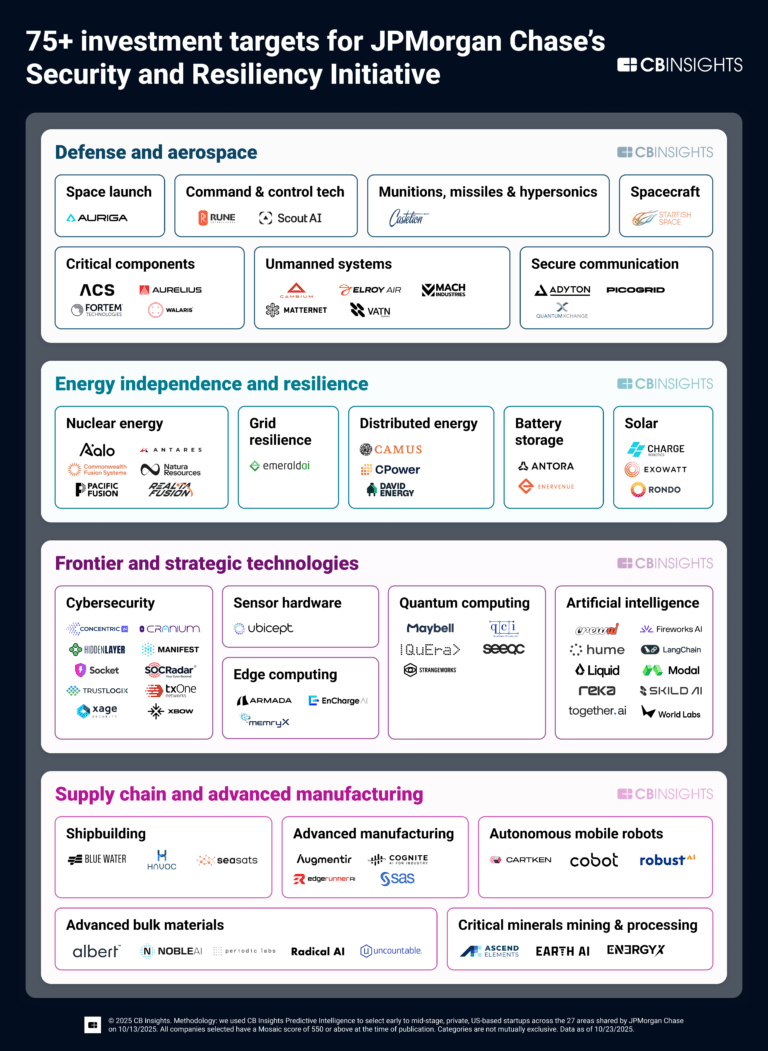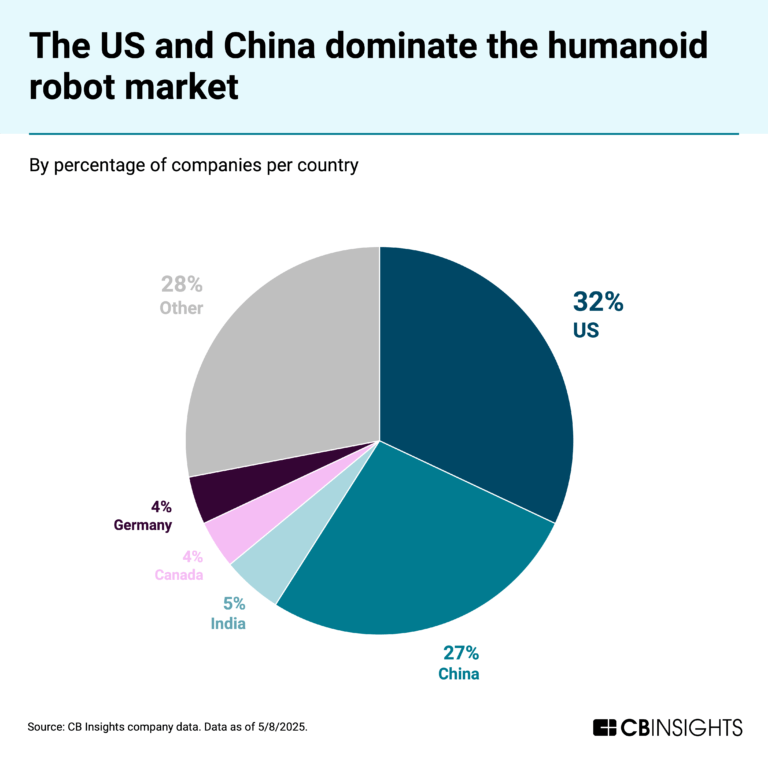
Skild AI
Founded Year
2023Stage
Series B | AliveTotal Raised
$814.5MValuation
$0000Last Raised
$500M | 5 mos agoMosaic Score The Mosaic Score is an algorithm that measures the overall financial health and market potential of private companies.
+216 points in the past 30 days
About Skild AI
Skild AI develops embodied systems in the robotics industry. The company offers a robotics foundation model, known as Skild Brain, which is designed to adapt across various hardware and tasks. Skild AI serves sectors that require automation and robotics solutions, including construction, manufacturing, and security. It was founded in 2023 and is based in Pittsburgh, Pennsylvania.
Loading...
Loading...
Research containing Skild AI
Get data-driven expert analysis from the CB Insights Intelligence Unit.
CB Insights Intelligence Analysts have mentioned Skild AI in 9 CB Insights research briefs, most recently on Oct 24, 2025.
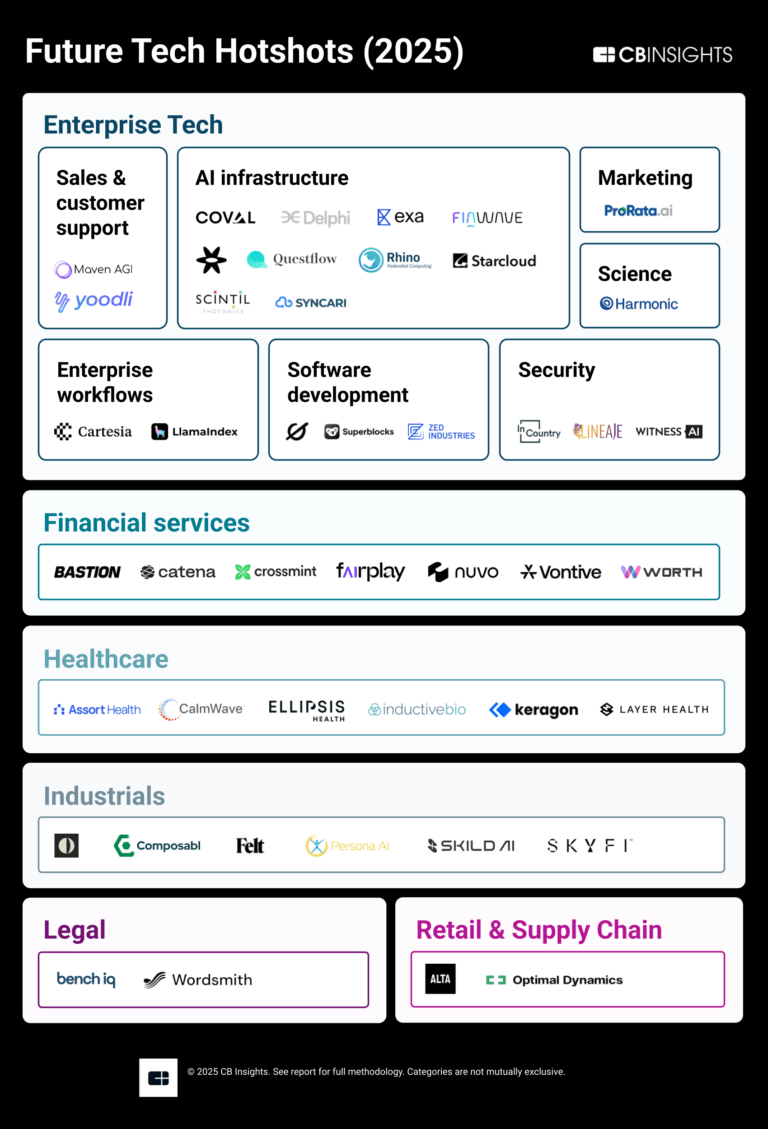
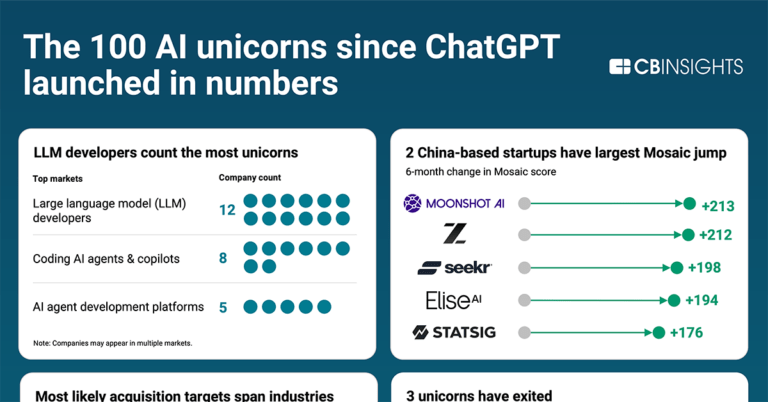
Aug 26, 2025 report
All 100 AI unicorns since ChatGPT launched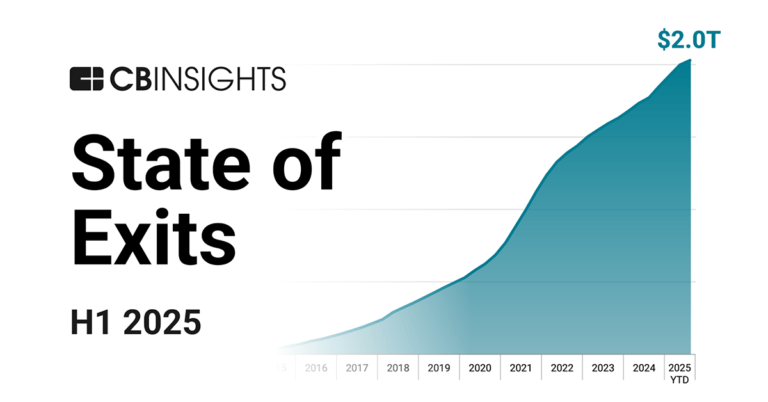
Aug 25, 2025 report
State of Tech Exits H1’25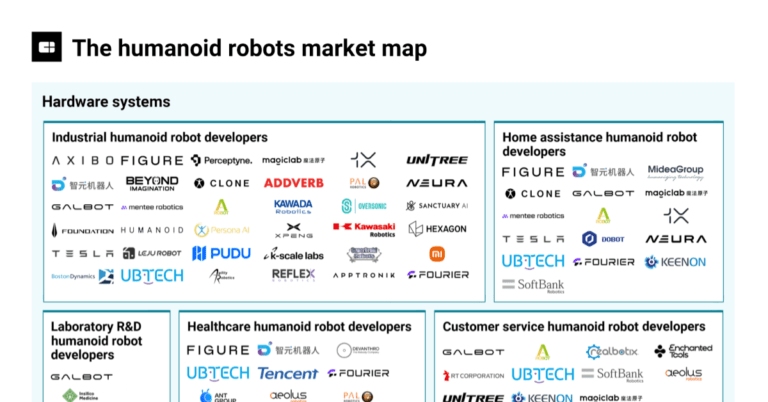
Jun 26, 2025
The humanoid robots market map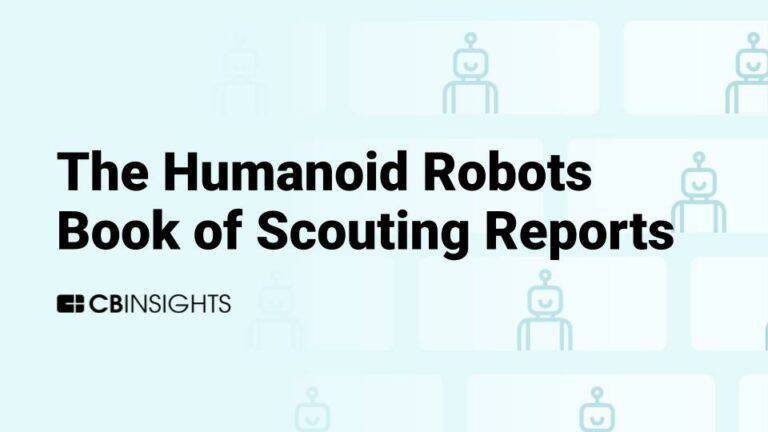
Jun 26, 2025 report
Book of Scouting Reports: Humanoid Robots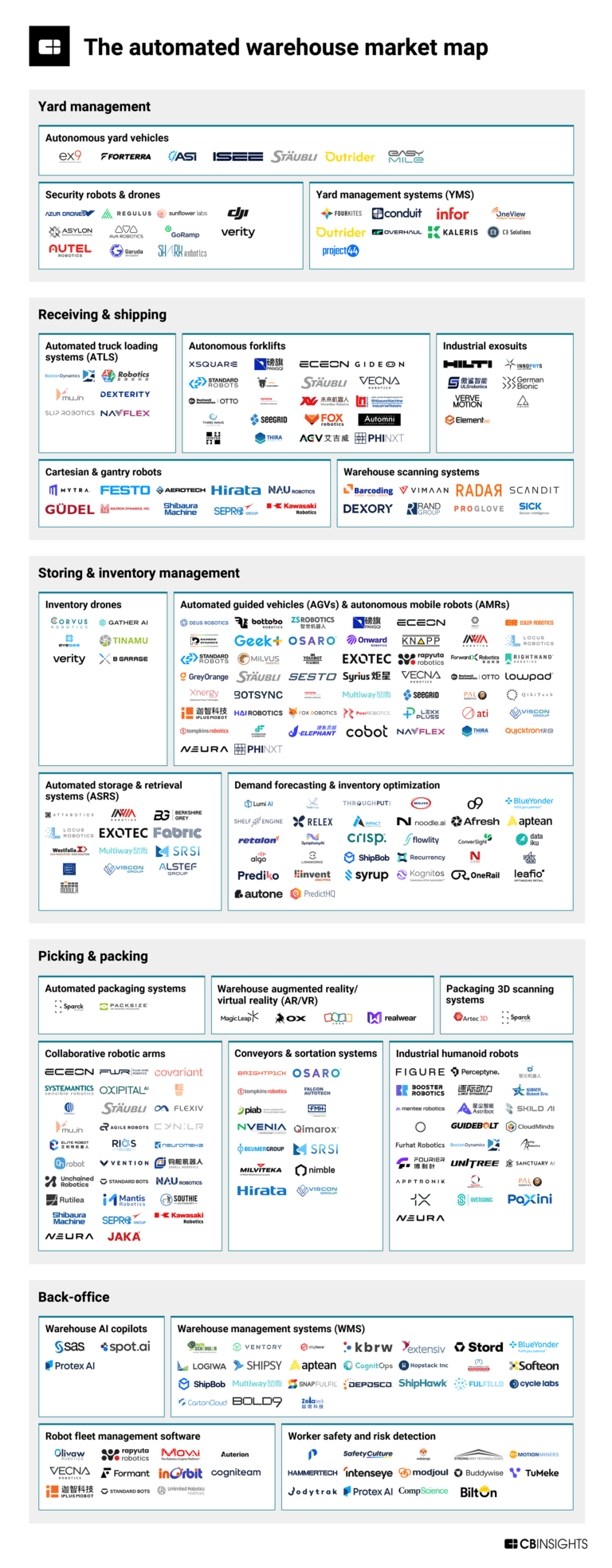
Feb 13, 2025
The automated warehouse market mapExpert Collections containing Skild AI
Expert Collections are analyst-curated lists that highlight the companies you need to know in the most important technology spaces.
Skild AI is included in 7 Expert Collections, including Unicorns- Billion Dollar Startups.
Unicorns- Billion Dollar Startups
1,297 items
Advanced Manufacturing
7,017 items
Companies in the advanced manufacturing tech space, including companies focusing on technologies across R&D, mass production, or sustainability
Artificial Intelligence (AI)
37,256 items
Companies developing artificial intelligence solutions, including cross-industry applications, industry-specific products, and AI infrastructure solutions.
Generative AI
2,951 items
Companies working on generative AI applications and infrastructure.
Robotics
2,753 items
This collection includes startups developing autonomous ground robots, unmanned aerial vehicles, robotic arms, and underwater drones, among other robotic systems. This collection also includes companies developing operating systems and vision modules for robots.
Supply Chain & Logistics Tech
5,344 items
Companies offering technology-driven solutions that serve the supply chain & logistics space (e.g. shipping, inventory mgmt, last mile, trucking).
Latest Skild AI News
Nov 5, 2025
AgiBot is using AI-powered robots to do new manufacturing tasks. Smarter machines may transform physical labor in China. Comment Save this story AgiBot, a humanoid robotics company based in Shanghai, has engineered a way for two-armed robots to learn manufacturing tasks through human training and real-world practice on a factory production line. The company says its system, which combines teleoperation and reinforcement learning, is being tested on a production line belonging to Longcheer Technology, a Chinese company that manufactures smartphones, VR headsets, and other electronic gadgets. AgiBot’s project shows how more advanced AI is starting to change the abilities of industrial machines—an innovation that may creep into new areas of manufacturing in China and elsewhere. The trend may increase manufacturing productivity and could allow products to be made with fewer low-wage human workers. This might lead to some jobs disappearing, but new ones being created. Robots are widely used in factories for chores like lifting boxes and moving bins. But the work involved in assembling, say, an iPhone requires dexterity, deft sensing, and adaptation—things that robots generally lack. While AI is increasingly used to help robots do things like spot items moving along conveyor belts and decide how to grasp them, it is not yet a reliable tool for training them to do complex manipulation. AgiBot G2 in action on the validation line after RL. Courtesy of AgiBot AgiBot representative Yuheng Feng says the robot deployed at the Longcheer plant takes components from a machine that performs testing, then places them onto a production line—the kind of task robots can handle because it does not involve fine manipulation or working with bendable or fragile parts. The real question is how effectively AgiBot’s algorithms can teach its robots new tricks. Using reinforcement learning to teach a robot tasks that require improvisation generally requires a lot of training data, and studies show it cannot be perfected entirely inside a simulation. AgiBot speeds up the learning process by having a human worker guide the robot through a task, which provides a foundation for it to then learn by itself. Before cofounding AgiBot, chief scientist Jianlan Luo did cutting-edge research at UC Berkeley, including a project that involved robots acquiring skills through reinforcement learning with a human in the loop. That system was shown doing tasks including placing components on a motherboard. Feng says that AgiBot’s learning software, called Real-World Reinforcement Learning, only needs about ten minutes to train a robot to do a new task. Rapid learning is important because production lines often change from one week to the next, or even during the same production run, and robots that can master a new step quickly can adapt alongside human workers. Training robots this way requires a lot of human effort. AgiBot has a robotic learning center where it pays people to teleoperate robots to help AI models learn new skills. Demand for this kind of robot training data is growing, with some US companies paying workers in places like India to do manual work that serves as training data. Jeff Schneider, a roboticist at Carnegie Mellon University who works on reinforcement learning, says that AgiBot is using cutting-edge techniques, and should be able to automate tasks with high reliability. Schneider adds that other robotics companies are likely dabbling with using reinforcement learning for manufacturing tasks. AgiBot is something of a rising star within China, where interest in combining AI and robotics is soaring. The company is developing AI models for various kinds of robots, including humanoids that walk around and robot arms that stay rooted in one place. Close-up of AgiBot G2 nailing a precision task post-training. Courtesy of AgiBot AgiBot’s AI-powered learning loop is precisely the kind of technology that US companies may need to master if they hope to reshore more manufacturing. A number of US startups are currently honing algorithms for new kinds of robo learning. These include Physical Intelligence , a heavily backed startup cofounded by some of the researchers who worked on the same project as Luo at UC Berkeley, and Skild , a spinout of Carnegie Mellon University that recently showed off robotic algorithms capable of adapting to new physical forms, including legged systems and robot arms. China’s huge manufacturing base is likely to give startups there some key advantages. These include a supply chain capable of prototyping rapidly and producing robots on a massive scale, a ready market for robot labor, and workers to help train robotic models. There are already more industrial robots operating in China than in every other country combined, according to the International Federation of Robotics, an industry body. The Chinese government’s latest five-year-plan , released in September, also calls for more technologically driven economic growth with a focus on AI and robotics, something that is likely to spur further investment and government initiatives aimed at growing more advanced robots. One US-based robotics entrepreneur told me recently that he is not especially worried about US rivals—but Chinese robotics firms keep him up at night.
Skild AI Frequently Asked Questions (FAQ)
When was Skild AI founded?
Skild AI was founded in 2023.
Where is Skild AI's headquarters?
Skild AI's headquarters is located at 141 South Saint Clair Street, Pittsburgh.
What is Skild AI's latest funding round?
Skild AI's latest funding round is Series B.
How much did Skild AI raise?
Skild AI raised a total of $814.5M.
Who are the investors of Skild AI?
Investors of Skild AI include Lightspeed Venture Partners, Menlo Ventures, Carnegie Mellon University, Bezos Expeditions, Coatue and 25 more.
